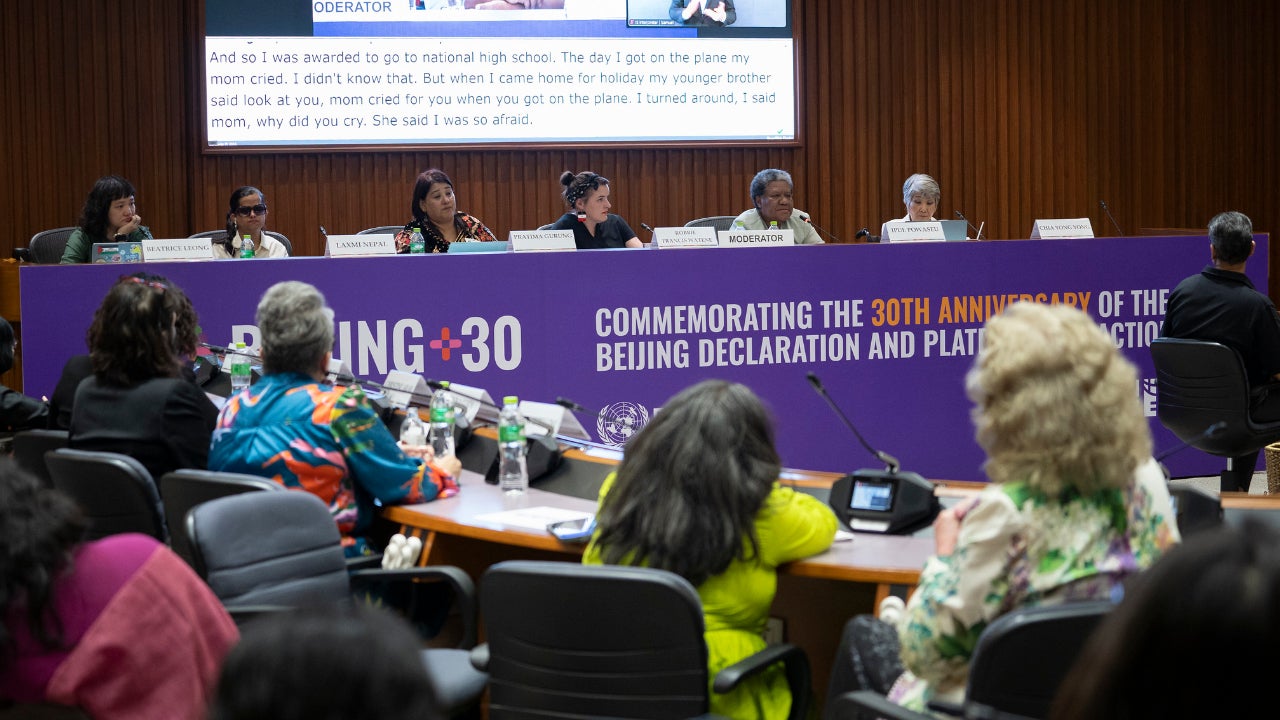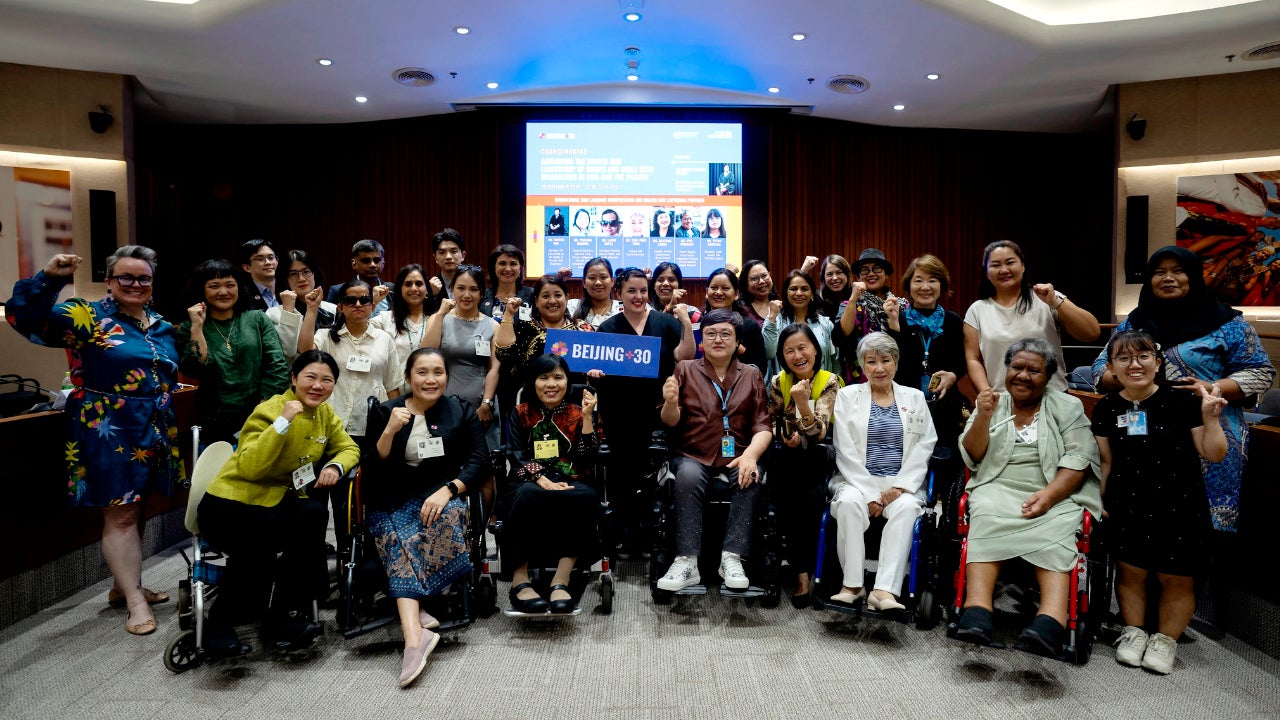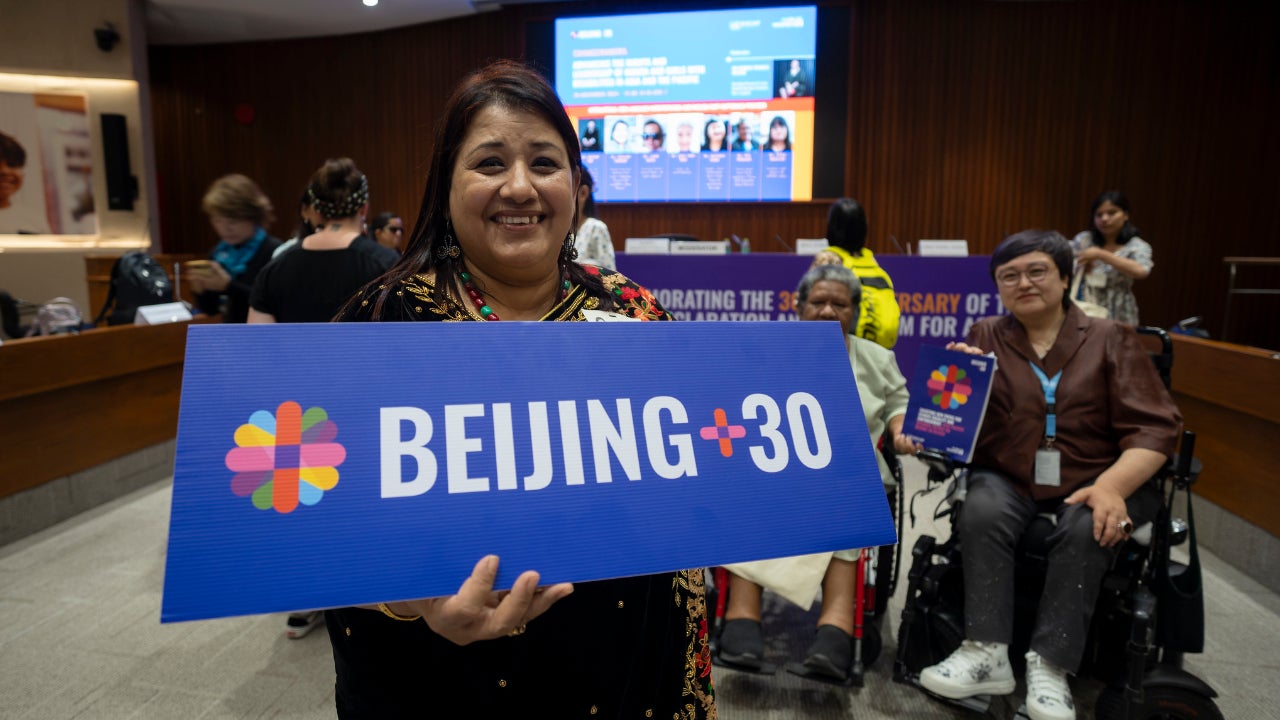Women with disabilities elevate importance of leadership at the Asia-Pacific Beijing+30 Ministerial Conference
Date:
UN Women is calling for the inclusion of women and girls in all their diversity in leadership and decision-making to be strengthened and sustained, following the impact women with disabilities made during the Asia-Pacific Ministerial Conference on the Beijing+30 Review in Bangkok last month.
This appeal comes on the International Day of Persons with Disabilities (IDPD) on 3 December and reinforces its 2024 theme, of “Amplifying the leadership of persons with disabilities for an inclusive and sustainable future”.
Women with disabilities from across the region took part in the Ministerial Conference, co-convened by the UN Economic and Social Commission for Asia and the Pacific (UNESCAP) and UN Women, and demonstrated the proven value and impact of their leadership and inclusion, including during a dedicated side event and roundtable discussion on women’s leadership and participation.
During the Ministerial Conference, as well as the preceding Civil Society Forum and Young Feminist Forum, women with disabilities emphasized the importance of ensuring that opportunities to lead and shape decisions are inclusive of and accessible for women with disabilities, in all their diversity.
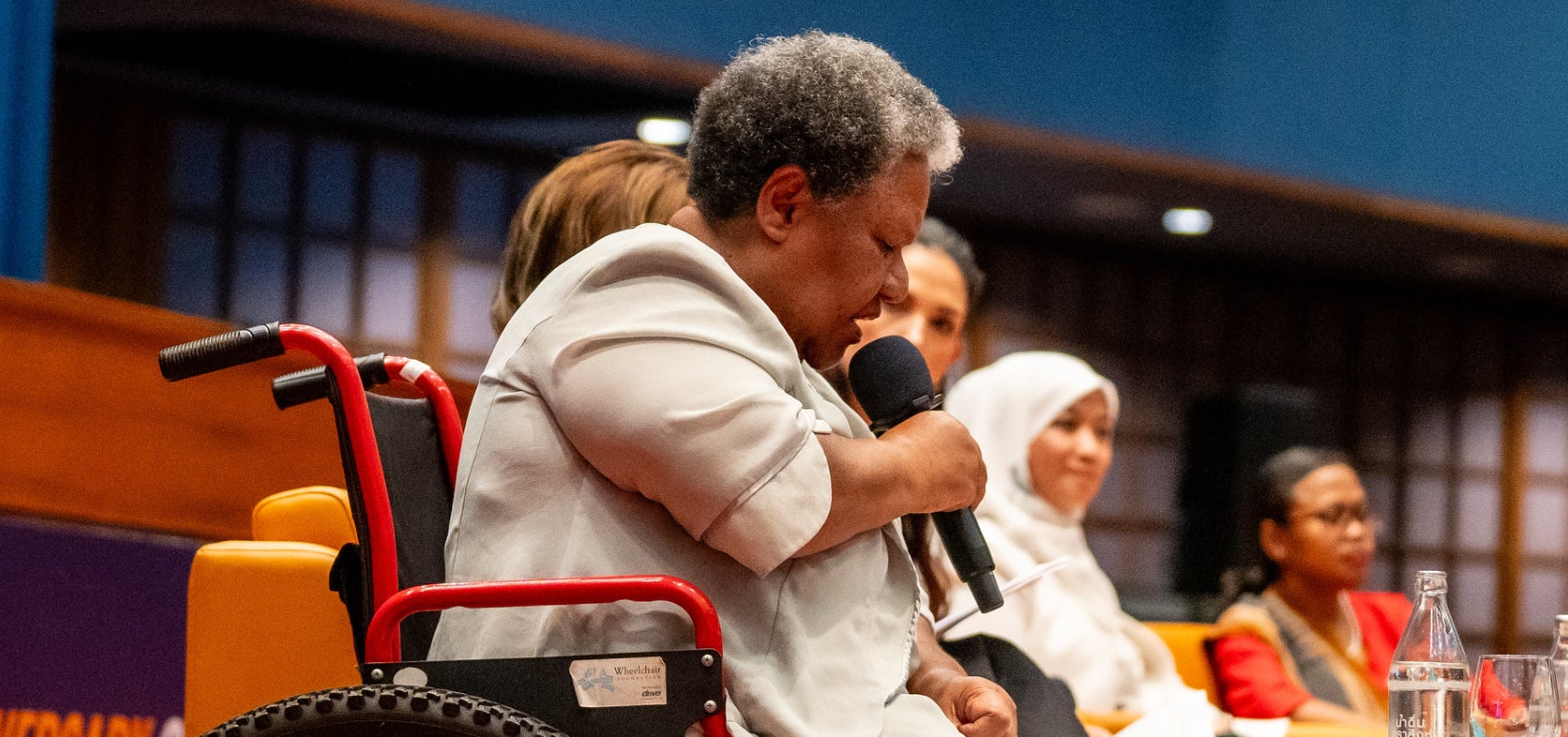
Ipul Powaseu, OBE, gave a frank account of her journey growing up with a disability in Papua New Guinea, from her family’s low expectations, to graduating from university and ultimately becoming the Pacific Region Focal Person for the Indigenous Persons with Disabilities Global Network.
“Experiencing stigma and discrimination during that journey of mine, I never wanted to be associated with people with disabilities,” said Ms Powaseu, who explained how her attitude changed over time.
“At a time when the organization of persons with disabilities was not well established in my country, service providers were speaking on our behalf, and we were sitting down listening. So, I decided we had to step up and be change agents for ourselves. I had to make sure that leaders within the disability movement understood who they were and what they were there for because if we don’t know what we’re fighting for, no one will listen to us.”
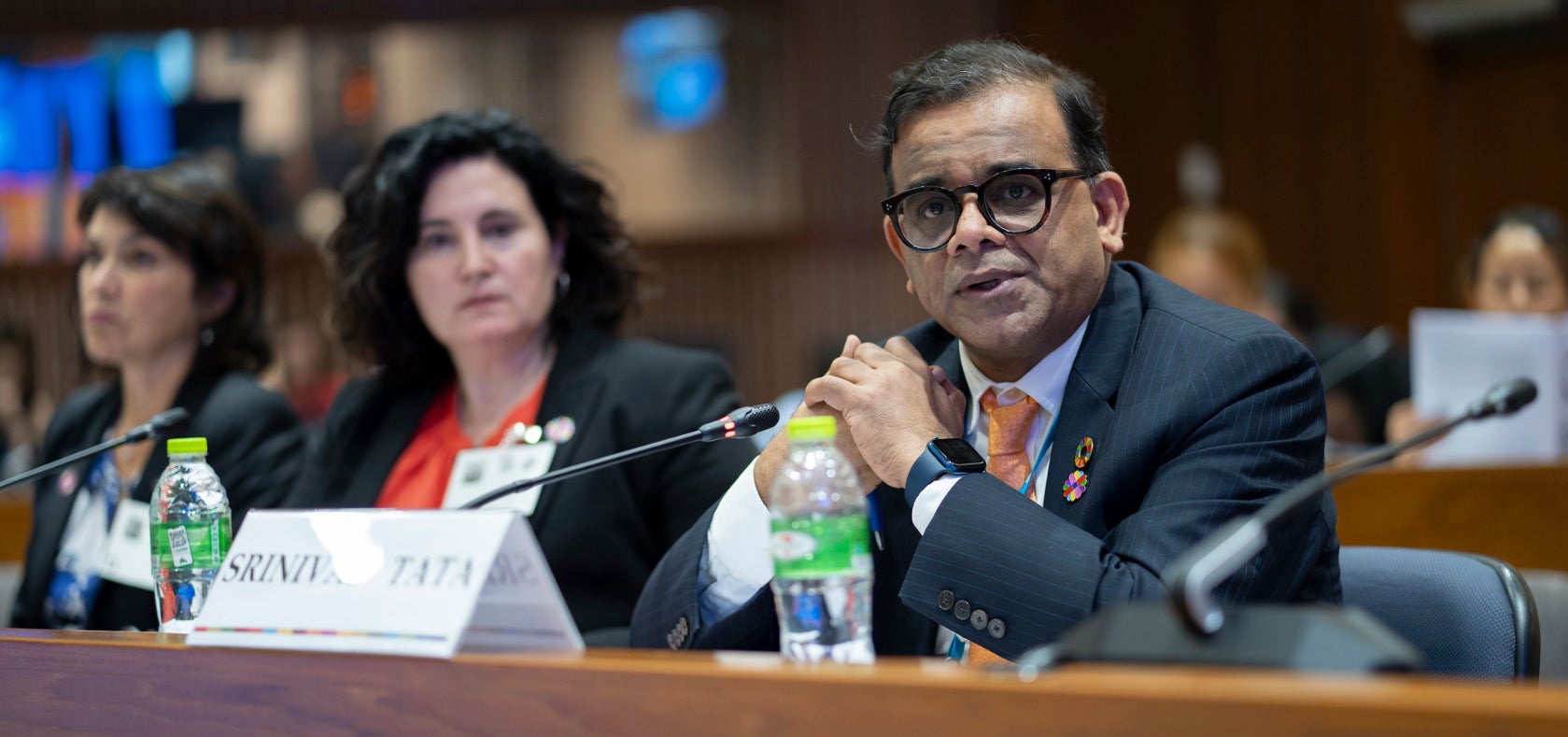
Christine Arab, UN Women Regional Director for Asia and the Pacific, said it was the role of UN Women to create space for the views of women living with disabilities to be heard and integrated.
“Wherever we can create opportunities for women with disabilities to have a voice and create their own agency, UN Women will do that by joining with civil society and the activists who know what is needed and what needs to change,” said Ms Arab.
According to Srinivas Tata, Director of UNESCAP’s Social Development Division, the Beijing Platform for Action and other instruments have highlighted that women with disabilities are critical agents of change and that the barriers hindering their full participation must be removed.
“In the coming decade, we have to address the intersectionality between gender and disability really concretely as a way forward for building a transformative society, and one undertaking is that this will be a critical area of partnership for the entire UN system in the region,” said Mr Tata.
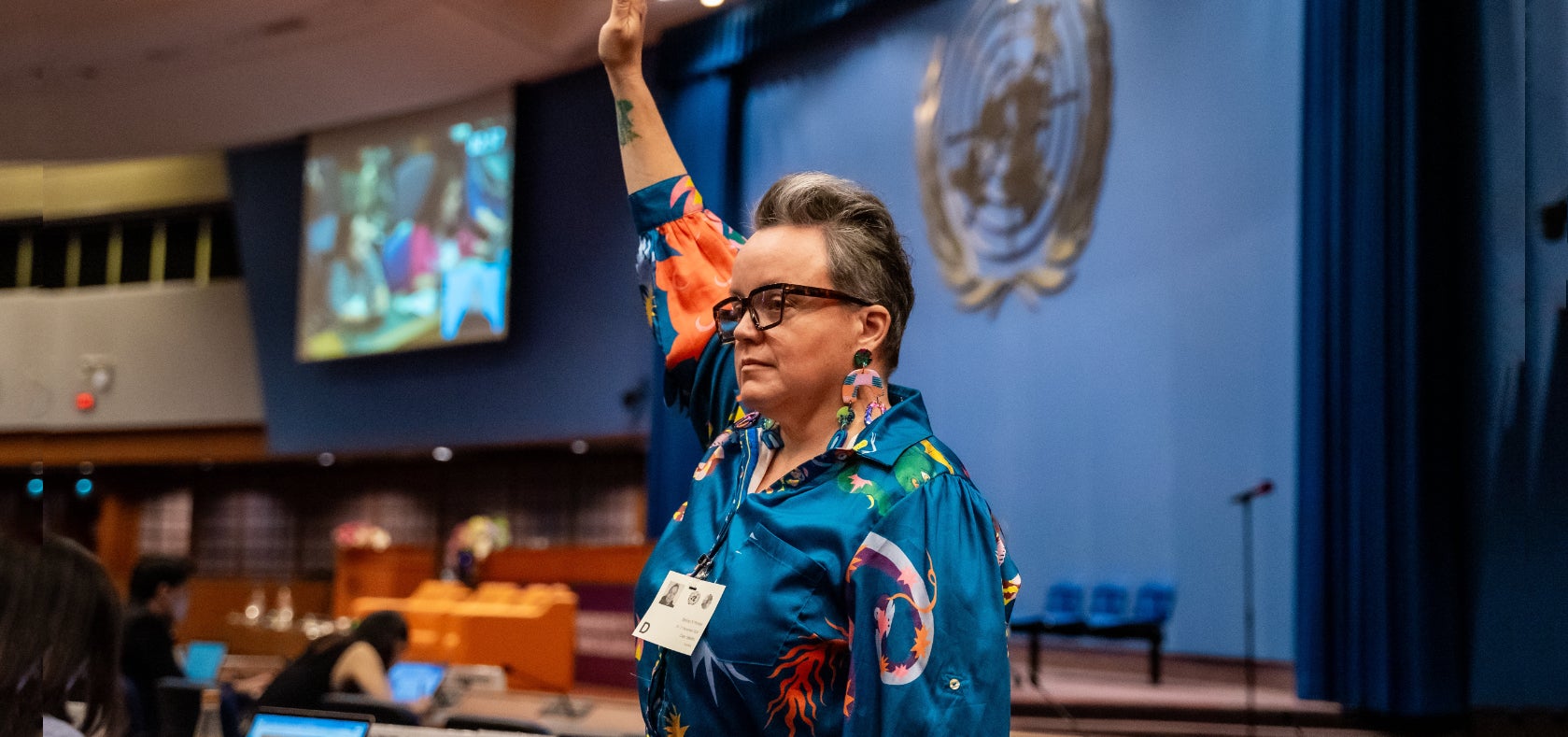
Also speaking at the change-makers side event, Clare Gibellini, Policy Officer at Women with Disabilities Australia encouraged leaders across all sectors to address their unconscious bias to including people with disabilities.
“Have a look around the table and think about who’s missing when making decisions,” said Ms Gibellini. “Sit with the inevitable, uncomfortable feeling that will follow from that reflection and then take active steps towards providing equitable opportunity for women with disabilities to become those active leaders at all levels.”

At the Change-makers side event, Beatrice Leong (left), Founder, Autism Inclusiveness Direct Action Group and documentary filmmaker, and Laxmi Nepal, Executive Director of Access Planet and youth advocate shared their lived experiences. Photo: UN Women/Path Thongking
Laxmi Nepal, Executive Director of Access Planet, said that as a young woman with a disability she was filled with hope and determination, yet also frustrated.
“We stand here because of the tireless efforts of generations but, as a young person representing Asia and the Pacific, I am also a bit angry that today we still have to keep on fighting for our rights,” stated Ms Nepal. “Youth with disabilities continue envisioning where we’ll be defined by our identities and our abilities, rather than by what we couldn’t do. We strongly hope that the Beijing outcome document recognizes lived realities for all, and by ‘all’ I mean ‘all’.”
During the six days of the CSO Forum, Young Feminist Forum and Ministerial Conference, women with disabilities highlighted several areas requiring attention, including implementation of the Convention on the Rights of Persons with Disabilities, accessibility (physical, digital and informational), recognition of legal capacity, elimination of stigma and stereotypes, leadership training, addressing intersectional discrimination, development of lived expertise, and the establishment of quotas and mandates for disability inclusion.
In advance of the conference, many women with disabilities also mobilized at the national and regional level to set out their calls for action, including through the Kathmandu Declaration on B+30 by Women and Girls with disabilities, endorsed by 40 organizations of persons with disabilities/women and girls with disabilities working actively in Nepal as of September 2024 and the Asia Pacific Declaration of Women and Girls with Disabilities for Beijing+30, with 35 contributors, and 200+ endorsements, the declaration was drafted and facilitated by Rising Flame.
The Ministerial Conference concluded in Bangkok on 21 November 2024.
More information
